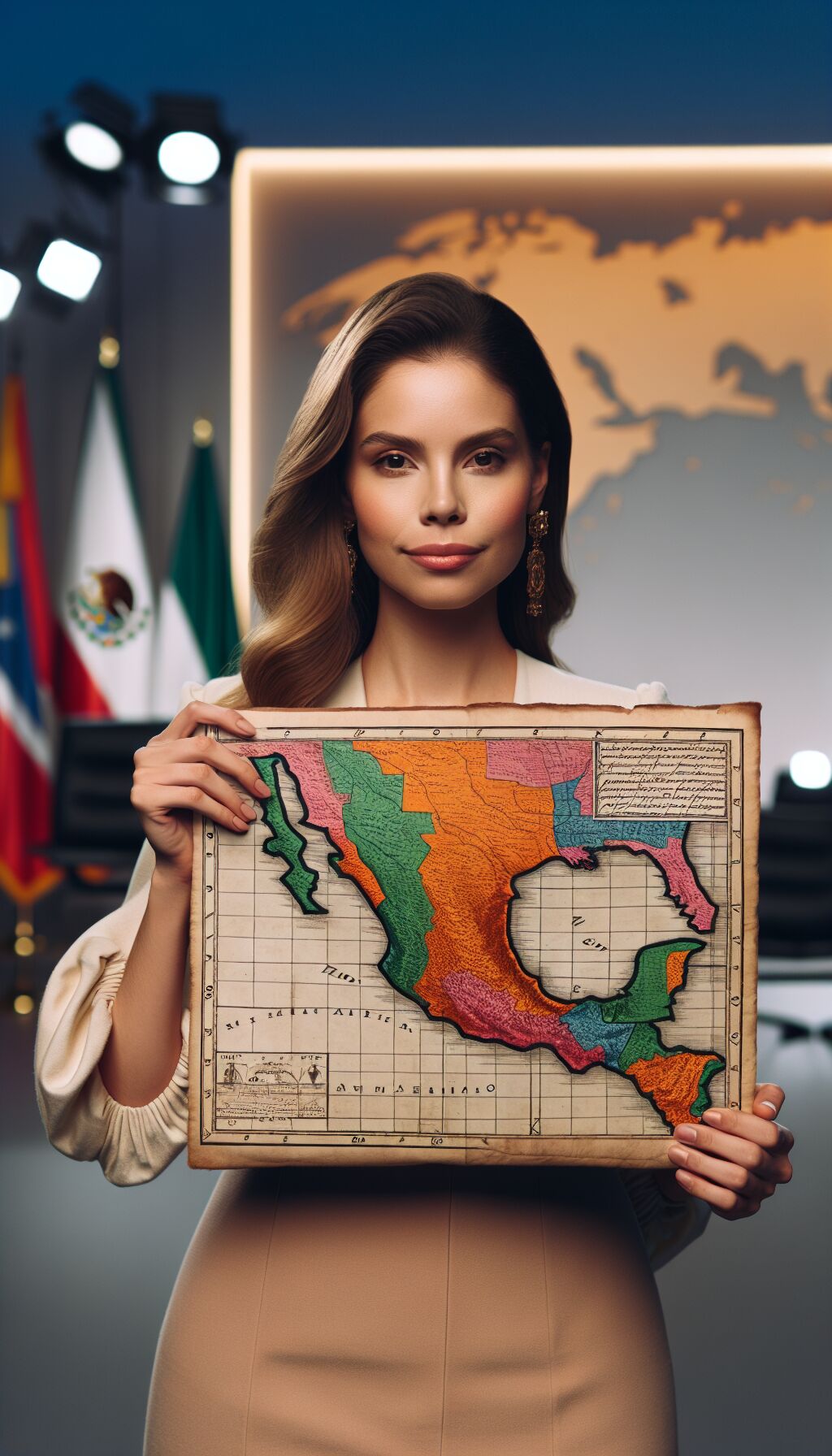Sheinbaum Dismisses Trump’s Gulf of Mexico Rename Amidst Tense Relations
A New Moniker: Mexican America
In a spirited response to President-elect Donald Trump’s announcement regarding the renaming of the Gulf of Mexico, Mexican President Claudia Sheinbaum quipped that she has a suggestion of her own: “Mexican America.” The remark, made during a press conference in Mexico City, underscores the tension that can arise in diplomatic exchanges between the two nations.
Historical Context
During her press briefing, Sheinbaum pointed to historical documents to back her jest. Joined by Mexico’s former culture minister, Jose Alfonso Suarez del Real, she referenced a map from 1607 which identified the northern part of the American continent as “Mexican America.” Suarez del Real emphasized, “The fact is that Mexican America has been recognized since the 17th century as the name for the entire northern part of the continent,” thereby grounding Sheinbaum’s playful comment with a historical context.
Trump’s Gulf of America Proposal
Trump, in his own press conference on Tuesday, made waves with a series of announcements regarding his second administration, during which he disclosed plans to rename the Gulf of Mexico to the “Gulf of America.” He proclaimed, “We have a massive deficit with Mexico, and we help Mexico a lot,” suggesting that the name change could symbolize a deeper connection between the two nations. He added, “The Gulf of America. What a beautiful name. And it’s appropriate,” positioning this renaming project as part of a broader agenda.
America, the Land of Opportunity?
In an age of increasing migration, Trump’s comments on illegal immigration painted a stark picture of the relationship between the United States and Mexico. “Mexico has to stop allowing millions of people to pour into our country,” he stated, making it clear that immigration reform would be a priority in his forthcoming administration. Trump hinted at the imposition of “very serious tariffs” on Mexico and Canada in response to the perceived increase in illegal crossings and drug trafficking.
Diplomatic Concerns
While Trump emphasized a narrative where Mexico is “run by cartels,” Sheinbaum promptly challenged this notion during her press conference, asserting that “the people are in charge” of Mexico. This defense reflects a national pride and a nuanced understanding of the complexity of governance in Mexico, positioning her response as a pushback against sweeping generalizations made by foreign politicians.
Looking Ahead: A Relationship in Flux
Despite the tension, Sheinbaum remains optimistic about the future of U.S.-Mexico relations under Trump’s second term. “I think there will be a good relationship,” she expressed, acknowledging that Trump has a distinctive way of communicating. The potential for strong diplomatic ties remains, even as both leaders navigate their respective political landscapes.
A Historic Exchange
This exchange between the leaders can be viewed as a microcosm of a larger narrative that encompasses history, identity, and the politics of the Americas. As both nations grapple with their histories and the modern implications of their neighborly relationship, lighthearted remarks and serious commentary coexist in shaping the diplomatic dialogue. The outcome of Trump’s administration and its policies will undoubtedly influence the trajectory of U.S.-Mexico relations in the years to come.
The Path Forward
As the political climate continues to evolve, both nations face the challenge of navigating complex issues ranging from trade to immigration. The suggestion of “Mexican America” and the “Gulf of America” highlights the manner in which identity and ownership can manifest in today’s geopolitical landscape. Will these discussions lead to a reevaluation of borders, cultural identities, and international relationships? Only time will tell, but one thing remains clear: the dialogue between Mexico and the United States is far from over.










